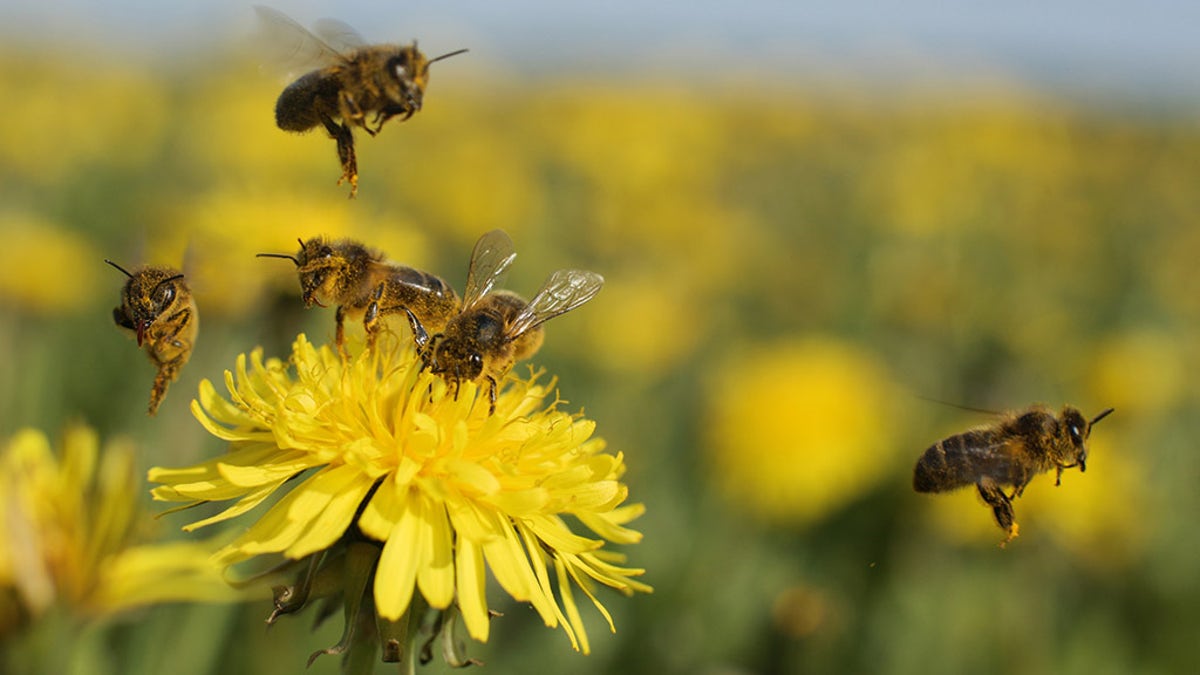
Honey bees pollinate a variety of crops, such as apples and melons.
The first-ever vaccine for insects now exists, thanks to scientists at the University of Helsinki in Finland hoping to save one of the most crucial pollinators in the world: the honey bee.
The vaccine, which is edible, “protects bees from diseases while protecting global food production,” the university said in a news release. The goal, researchers said, is to protect the bees against American foulbrood, “a bacterial disease caused by the spore-forming Paenibacillus larvae ssp. Larvae.”
The disease is the “most widespread and destructive of the bee brood diseases,” the university added.
HONEYBEES, IN DECLINE FOR DECADES, FINDING NEW HOMES IN UNUSUAL PLACES
Bloomberg reported the disease can kill “entire colonies” while its “spores can remain viable for more than 50 years.”
To distribute the vaccine, scientists place a sugar patty in the hive, which the queen then eats over the course of about a week. Once ingested, the pathogens in the patty are then passed into the queen’s eggs, “where they work as inducers for future immune responses,” the university explained in the statement.
The vaccine — which is not yet sold commercially, according to Bloomberg — is also significant because it was once not thought possible to develop a vaccine for insects, as these creatures’ immune systems do not contain antibodies.
"Now we've discovered the mechanism to show that you can actually vaccinate them. You can transfer a signal from one generation to another," Dalial Freitak, a University of Helsinki scientist who worked to create the vaccine, said in a statement.
Honey bees are important to the U.S. crop production, contributing an estimated $20 billion to its value, according to the American Beekeeping Foundation. The species pollinate a variety of crops, including apples, melons, blueberries and cherries — the latter two are “90 percent dependent on honey bee pollination,” according to the foundation.
“One crop, almonds, depends entirely on the honey bee for pollination at bloom time,” the American Beekeeping Foundation added.
The honey bee population in North America has been affected by Colony Collapse Disorder (CCD) disease, mites and possibly the use of neonicotinoid pesticides, according to the Harvard University Library.
TENNESSEE 'BEE WHISPERER' REMOVES 35,000 HONEY BEES FROM BRICK WALL
On average, beekeepers in the U.S. lost an estimated 40 percent of their managed honey bee colonies from April 2017 to April 2018, according to Bee Informed, a nationwide collaboration of research efforts to better understand the decline of honeybees.
"We need to help honey bees, absolutely. Even improving their life a little would have a big effect on the global scale. Of course, the honeybees have many other problems as well: pesticides, habitat loss and so on, but diseases come hand in hand with these life-quality problems,” Freitak said.
“If we can help honey bees to be healthier and if we can save even a small part of the bee population with this invention, I think we have done our good deed and saved the world a little bit," Freitak added.
Fox News' Emilie Ikeda contributed to this report.








































